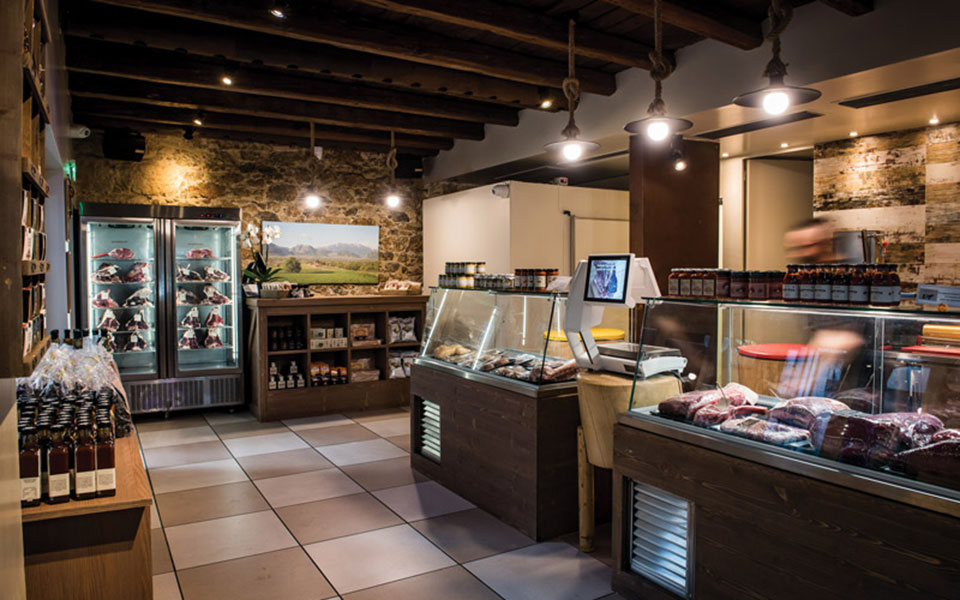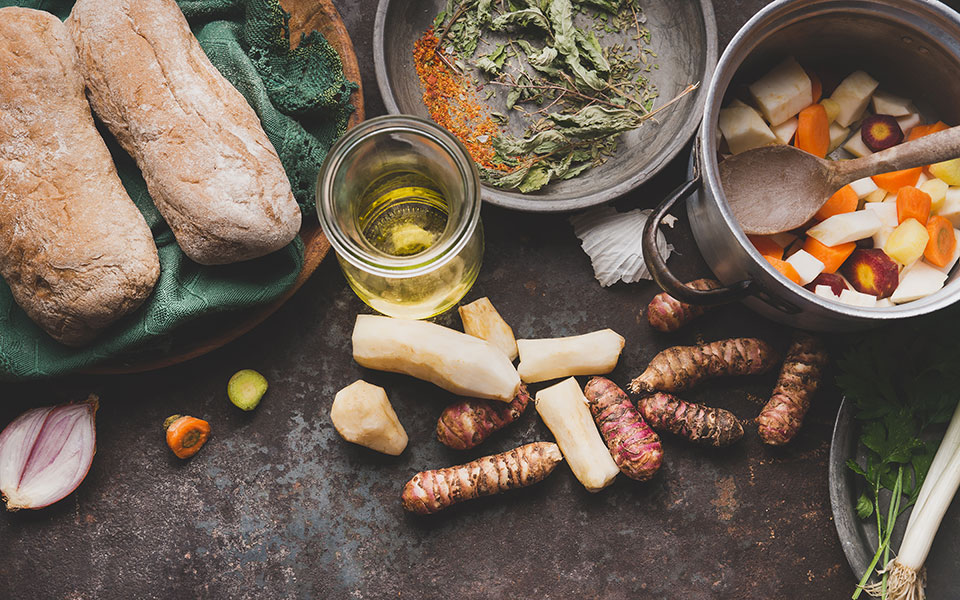Traditional or fusion? Greek or ethnic? To eat at tables with cloth napkins and fine cutlery or on simple outdoor wooden benches? You can find it all in Greece these days, and especially in the capital.
For 2018, chefs are creating even more specialized menus, while the flavors and cuisines of far-off countries will become even more accessible. Many trends we’ve seen the last few years seem to only be getting bigger; brunch, Asian food and cocktails are still the hottest topics among foodies in Athens. Meanwhile, other trends are gaining ground, such as small street food restaurants run by accomplished chefs, dry-aged meat, and menus imbued with a farm-to-table philosophy that sees chefs getting ever more involved in the production of their ingredients.
These are just some of the developments on the cutting edge of the food scene in Greece that make us so excited to see what exactly will be put on menus in the coming months.
Boiling things down, below is a look at seven trends likely to raise Athens’ food game to even greater heights.

© Hoocut
1. Street Food by Famous Chefs
Food trucks serving fresh Asian street food; tiny little restaurants that use choice ingredients from south east Asia; sandwiches with Greek PDO (protected designation of origin) products from small producers; even elevated souvlaki made with excellent cuts of perfectly marinated meat – these examples are all proof that street food in Athens has never been better. It often has foreign influences, and lately many new restaurants are the creations of well-known chefs.
From Syntagma and Monastiraki to Halandri – and soon many other places – you will be able to enjoy food on-the-go, yet made by some of the best chefs in the country.

2. Aged Everything
Meat is dry-aged in special fridges, cucumber is pickled, local cheese is matured for many months, and cabbage is kept in brine. As we speak, chefs are carefully storing ingredients in cellars, vats, and on shelves with the perfect conditions for each to mature and develop more intense and complex flavors.
We already see dry-aged meat on many menus, as well as salads with aged cheeses and various pickled vegetables. Many chefs choose to age their ingredients themselves, rather than purchasing them ready.
3. Do it yourself
In 2018, much of the food you will order in the city’s restaurants will be made with ingredients produced (or whose production has been overseen) by the chefs themselves. The most hands-on chefs grow vegetables on small plots around Athens, and herbs and edible flowers in greenhouses in the restaurants themselves. They bake their own bread, and work closely with farmers. It is farm-to-table all the way (a natural fit for Greece), as they get involved in every stage of the food production.

4. All about the roots
Some of these might have been around for years, but 2017 was undeniably the the year of the Jerusalem artichoke. Roots will continue to play a leading role in 2018 and, aside from the Jerusalem artichoke, celeriac, beets, and turnips, we will also increasingly see more extensive use of roots like radishes, rutabaga, and parsnip.
5. The three c’s
When it comes to spices, you can expect to taste a lot of coriander, cumin, and cardamom – mostly a result of culinary influences from the East.
Fresh coriander is not only a common ingredient in Mexican food but also in Indian and Thai. Cumin is essential when cooking recipes from Syria, Egypt, and other Eastern Mediterranean countries. Cardamom, which is considered an effective stimulant, adds powerful flavor to dishes.
6. Responsible cooking
During five days last year, as a part of the Refugee Food Festival, restaurants cooked for charities, and opened up their kitchens to refugee chefs currently living in Greece. Helping society and cooking for good causes in cooperation with NGO’s will again be on the chefs’ agendas in 2018.

7. Liquid Fuel: Soups and juices
Juice bars are by now well-established in central Athens, and it’s become common to stop for a quick, healthy energy boost in the form of a drink made from fresh fruits and vegetables. Other restaurants are also starting to put juices and healthy smoothies on their menus, and some have embraced the concept of energy bowls and healthy soups.
We’re also seeing how soups, enriched with protein, are moving to center stage as main courses rather than simple starters.












